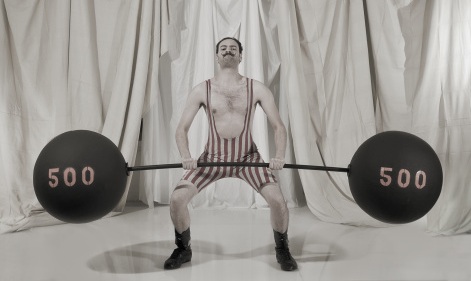Early in my self-development journey of trying to improve both socially and with women, I was told that I was trying too hard. But honestly, trying too hard gets a bad rap. If you want to become great at something, then what other option do you have but to be relentless?
In overcoming social anxiety and building social skills, it might be downright necessary for some people to focus most of their efforts on this, at least until they achieve a certain level of competence. I know that this was the case for me. Ultimately, it comes down to how important this is to you. If you are miserable and tired of living a lonely life, then put in the effort and do what it takes to change it.
When I first started improving myself, referring to the four stages of learning helped me understand how people develop skills, and gave me guidance on where I was and what I need to do to get where I wanted to be. I will now briefly summarize the four stages of learning and how it relates to developing your social and dating skills.
The Four Stages of Learning
1. Unconscious Incompetence
You lack awareness of how terrible you are at something, and may deny the importance of the skill.
This was the stage I was in before I discovered self-improvement. My social life was a mess, but I would make excuses and irrational justifications as to why I was fine the way I was. It was a very frustrating and unhappy place.
2. Conscious Incompetence
You realize how terrible you are, and this motivates you to take action towards building the skill.
Discovering self-improvement was basically like crossing the bridge from unconscious to conscious incompetence. I suddenly realized how terrible I was with women, and how important it was to improve this area of my life. As I got further along on my journey, I started to learn more about psychology and social dynamics, and I began to see the flaws in both my thought processes and actions. This helped me gain clarity on where I needed to focus to improve.
3. Conscious Competence
You start to become aware of what you’re doing right, and yet it requires you to intensely focus on the process.
My social skills have definitely improved over the past two years, and although I’m still nowhere close to mastery, I’m in a much better place than when I started. Initially, I found myself struggling with my body language and what I should say. With time, I’ve become less worried about these things and I’ve started focusing more on bigger picture challenges, like awareness of my behavior on the person that I’m interacting with.
4. Unconscious Competence
The skill becomes second nature, and things that you originally had to consciously focus on, you now do automatically.
I haven’t yet reached this stage socially nor with women, but with persistence, I know that I’ll get there.
One thing that I’ve learned is that this process takes time and can get frustrating, which is why it’s important to focus less on the outcome of each interaction, and more on celebrating the small successes while enjoying the journey.
Something else I’ve learned through this process is that getting from incompetence to competence requires massive and consistent action, especially to reach the stage of unconscious competence or second nature. How much effort you need to put in to get there is dependent on how low of a point you are starting out at, and how important making this change is to you.
People might tell you that “you’re trying too hard,” but don’t let their words discourage you. Most likely, they can’t relate to your situation and don’t know what it’s like to be in your shoes, so they aren’t in a good position to be offering advice or criticism. It’s best to just let their discouragements go in one ear and out the other. If you’re struggling with this, then check out our article on how to eliminate negative influences from your life.
The more consistent action you take, the quicker you will improve, plain and simple. Think of it as pushing a boulder up a hill. You have to work hard to get to the top, but things will get easier once you pass the peak. While working up to that point, any lapse in social activity will make it easy to fall back down the hill, so even when it gets tough, keep pushing!
From my experience, progress in developing social and dating skills is directly proportional to how much effort you put into it. Go out consistently, even when you don’t feel like it, and you’ll start to build momentum and motivation, and start noticing significant improvements.


Mike
Mike is the Producer for the Craft of Charisma Podcast.